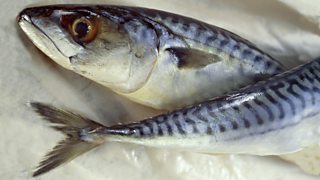Vitamins
Vitamins are only needed in small amounts to maintain a healthy body. A lack of vitamins in the diet leads to deficiency symptoms.
Vitamin C
Vitamin C (ascorbic acid) is needed to help heal wounds and maintain healthy connective tissue (which gives support to other tissues and organs). Oranges are a good source of vitamin C
Oranges are a good source of vitamin C
Good sources of vitamin C include:
- citrus fruits (such as oranges, lemons and limes)
- leafy green vegetables (such as sprouts and broccoli)
Vitamin C deficiency leads to scurvy. The symptoms of scurvy include bleeding and swelling of the gums, loss of teeth, tiredness and muscle and joint pain.
Vitamin D
The human body can make vitamin D when our skin is exposed to sunlight. Oily fish such as mackerel and sardines are a good source of vitamin D
Oily fish such as mackerel and sardines are a good source of vitamin D
Good dietary sources of vitamin D include:
- eggs
- margarine and breakfast cereals fortified with vitamin D
- oily fish
Vitamin D is needed to maintain healthy bones and teeth. Vitamin D deficiency leads to rickets and bone pain.
Vitamin A
Vitamin A is needed to maintain good vision, healthy skin and strong immunity against infection. Eggs are a good source of vitamin A
Eggs are a good source of vitamin A
Good sources of vitamin A include:
- milk, and dairy products (such as cheese and yoghurt)
- mackerel and other oily fish
Vitamin A deficiency leads to night blindness, which is when a person finds it difficult to see well in dim light.
The body can convert beta-carotene (found in carrots, spinach and mangoes, for example) into vitamin A.

